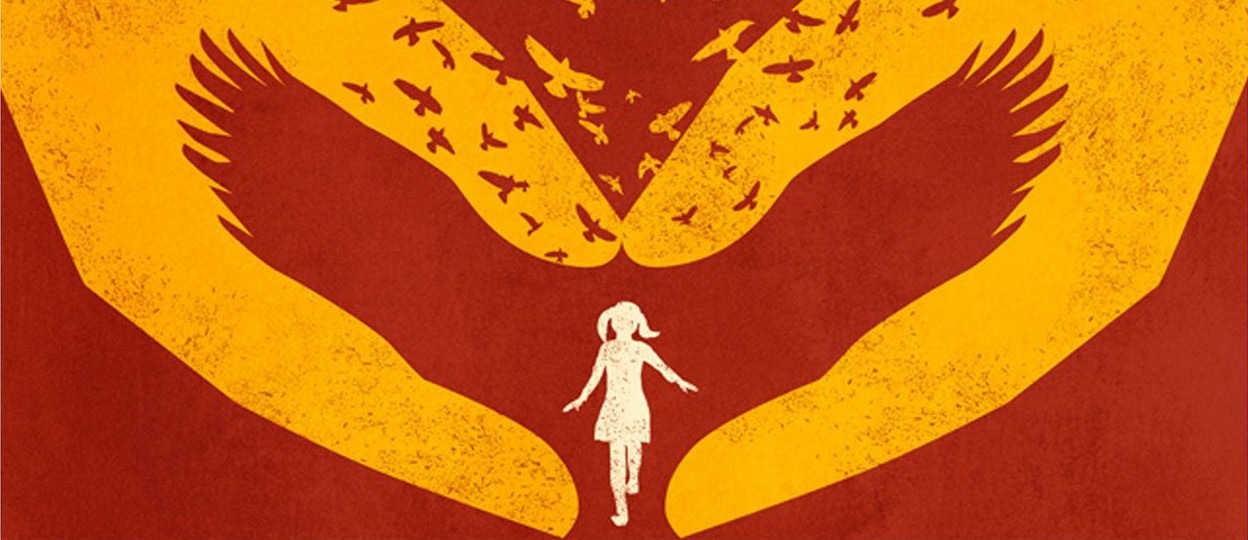
By Katie Freeland, MPH Global Health student
“Look into my eyes. Do you see it now? I am change.”
These are the words spoken by Amina, a young girl living in Afghanistan, sold by her family as a child bride to a man for the equivalent of $5,000, which was then spent on a used car for her brother. Amina is one of nine girls whose lives are recorded in the beautiful, heart-wrenching, and inspiring documentary Girl Rising, a film by the nonprofit 10x10 with Academy Award-nominated director Richard Robbins. These are girls from all over the world: Afghanistan, Cambodia, Haiti, Egypt, Peru, Ethiopia, Nepal, India, and Sierra Leone. Countries where society and culture make it extremely difficult, even dangerous, for girls and women to get an education. Places where girls are sold as if they’re not real, living, thinking, loving human beings. Where they’re objects used for hard labor and sex. Where, in the last 30 seconds you’ve spent reading this blog, 13 girls under the age of 18 have been traded or sold to be married (38,000 a day). Where the number one cause of death for girls ages 15-19 is childbirth. These statistics are bleak, at best. They spawn thoughts about the dark ways of the world, to make one question if there is even a remote possibility of tackling a problem so large, so evil. But there is good news, and it’s encapsulated in a single, extraordinarily powerful word.
Education.
Globally, 66 million girls are out of school. Wadley, a Haitian girl, was only seven when the disastrous 2010 earthquake struck. Wadley loved going to school and learning about brave and courageous people of history. But she always wondered why there weren’t more women in her history books. After the earthquake, however, her family did not have the money to continue sending her to school. She missed it dearly. So, she went back anyway. Her teacher sent her away because her family had not paid for her to be there. But Wadley returned the next day. The teacher tried sending her away again, but Wadley stood up and boldly replied,
“Even if you send me away, I will come back every day... until I can stay.”
The teacher, struck speechless, paused for a second and then smiled. Wadley could stay. Now here are some hopeful statistics: A girl with an extra year of education can earn 20% more as an adult. Girls with 8 years of education are 4 times less likely to be married as children. A child born to a literate mother is 50% more likely to survive past the age of 5. If India enrolled 1% more girls in secondary school, their GDP would rise by $5.5 billion.
An educated girl can, and will, change the world.
In December 2011, the United Nations declared that October 11 would be International Day of the Girl, to be observed every year starting in 2012. The UN website states that, “Recognizing the need for fresh and creative perspectives to propel girls’ education forward, the 2013 International Day of the Girl Child will address the importance of new technology, but also innovation in partnerships, policies, resource utilization, community mobilization, and most of all, the engagement of young people themselves.” Today is the 2nd annual International Day of the Girl. I had the privilege of attending a screening of Girl Rising last night in Newport Beach, organized by a Loma Linda University School of Public Health graduate, Dr. Pamela Luna. The film is a masterpiece combining creative animation, breathtaking cinematography, and brilliant storytelling of the lives of each girl, as told by nine renowned authors from each country documented, and narrated by nine award-winning actresses. According to its website, “Girl Rising is a groundbreaking feature film about the strength of the human spirit and the power of education to transform societies… [it] is a grassroots global action campaign for girls’ education, powered by girls, women, boys and men around the world who stand for equality.” Girl Rising is a testimony of the resilience, radiance, and brilliance that comes from the minds of girls all over the world–girls that have faced unimaginable darkness with unrivaled, spectacular courage. Courage of which many of us wish we could even have a fraction. Courage to fight for the rights of themselves, their friends, their mothers, their sisters, and the generations of girls to come.
